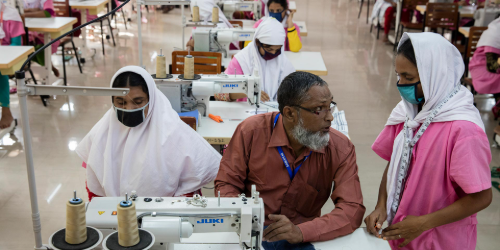Egypt Unleashes Digital Clampdown as Police Intensify Surveillance on Citizens

In response to a renewed wave of anti-government sentiment and sporadic protests, Egyptian authorities have intensified their campaign against dissent, deploying both traditional police tactics and advanced digital surveillance tools. The clampdown follows rare demonstrations sparked by corruption allegations from former government contractor Mohammed Ali, which have shaken the fragile political order maintained since President Abdel Fattah el-Sisi came to power in 2013.
Police in Cairo and other major cities have widely adopted a “stop and search” policy, stopping citizens at random to inspect their phones and laptops for any material critical of the government or related to protest organization. Under official directives, officers reportedly scrutinize social media accounts, private messages, and photographs for evidence of political activity. Eyewitnesses and social media users, including journalists like Nuria Tesón, have reported arrests for refusing to comply with searches or for possessing material considered “political.” In response, many citizens are deleting potentially incriminating posts before leaving their homes.
The crackdown has expanded beyond physical policing to include targeted cyberattacks. Cybersecurity firm Check Point disclosed that Egyptian journalists, academics, opposition figures, and human rights activists have been subjected to digital intrusions that allow attackers to read files, monitor emails, and track communications. Human rights observers estimate that since protests began on September 20, more than 3,000 people have been detained in connection with the demonstrations.
Egypt’s growing digital authoritarianism is backed by law. A controversial social media bill passed last year grants the state sweeping powers to suspend or block personal accounts accused of spreading “fake news” or content that “incites violence or hatred.” Authorities have also blocked hundreds of websites deemed a threat to national security or the economy. Citizens who attempt to bypass such restrictions risk prosecution and imprisonment, according to Human Rights Watch.
Experts warn that Egypt’s tactics mirror a troubling continental pattern of repression through technology. Comparisons have been drawn to Nigeria’s defunct SARS unit, notorious for harassing young people during street searches. Analysts also note echoes of the Arab Spring, with surveillance now replacing open confrontation. Across Africa, similar trends are emerging from repressive cyber laws to full-scale internet shutdowns, such as Cameroon’s 40-week blackout between 2017 and 2018.
While Egypt has not yet resorted to a total internet shutdown, the scale of its current crackdown suggests that its tolerance for digital freedom is rapidly diminishing — raising fears of a future where state control extends to every screen and every voice.
You may also like...
Super Eagles Fury! Coach Eric Chelle Slammed Over Shocking $130K Salary Demand!
)
Super Eagles head coach Eric Chelle's demands for a $130,000 monthly salary and extensive benefits have ignited a major ...
Premier League Immortal! James Milner Shatters Appearance Record, Klopp Hails Legend!

Football icon James Milner has surpassed Gareth Barry's Premier League appearance record, making his 654th outing at age...
Starfleet Shockwave: Fans Missed Key Detail in 'Deep Space Nine' Icon's 'Starfleet Academy' Return!

Starfleet Academy's latest episode features the long-awaited return of Jake Sisko, honoring his legendary father, Captai...
Rhaenyra's Destiny: 'House of the Dragon' Hints at Shocking Game of Thrones Finale Twist!

The 'House of the Dragon' Season 3 teaser hints at a dark path for Rhaenyra, suggesting she may descend into madness. He...
Amidah Lateef Unveils Shocking Truth About Nigerian University Hostel Crisis!

Many university students are forced to live off-campus due to limited hostel spaces, facing daily commutes, financial bu...
African Development Soars: Eswatini Hails Ethiopia's Ambitious Mega Projects

The Kingdom of Eswatini has lauded Ethiopia's significant strides in large-scale development projects, particularly high...
West African Tensions Mount: Ghana Drags Togo to Arbitration Over Maritime Borders

Ghana has initiated international arbitration under UNCLOS to settle its long-standing maritime boundary dispute with To...
Indian AI Arena Ignites: Sarvam Unleashes Indus AI Chat App in Fierce Market Battle

Sarvam, an Indian AI startup, has launched its Indus chat app, powered by its 105-billion-parameter large language model...





